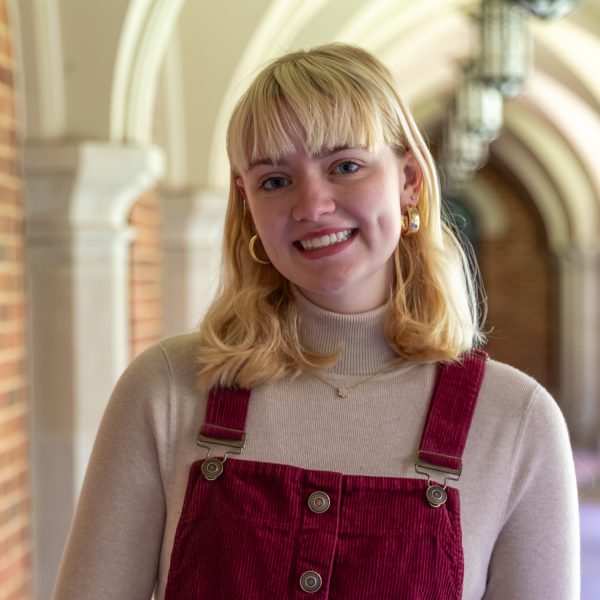“Whenever there’s a creative eureka moment, a moment where you feel like you’ve had an epiphany, it’s always really exciting,” Tom Schulman said. “When the ending of “Dead Poets Society” hit me…I realized these boys are being muffled, they can’t say anything, and then one of them stands up in his chair, and I got it.”
This eureka moment led to the film’s powerful scene where the boys say “O Captain! My Captain!” to their beloved professor, a well-known line from the script.
This upcoming weekend, The Tennessee Screenwriting Association (TSA) is holding Script-Com, a free virtual conference that discusses the art and business of screenwriting. This is the perfect event for anyone interested in screenwriting, producing, directing, entertainment law or filmmaking. At the event, you can connect and interact with professionals in the filmmaking industry; there will be six in attendance: Tom Schulman, Terri Emerson, Dana Weissman, Anita Modak-Truran, Ella Douglas and Barb Doyon. The event is from 10 a.m.- 4 p.m. CST on Dec. 2 on Zoom.
TSA is a non-profit that works to provide an educational space for those interested in the film industry. They hold free weekly meetings where members can read their ideas for constructive criticism and feedback. Networking opportunities are also available through many events, including Script-Com.
In preparation for this event, we interviewed screenwriter Tom Schulman (‘72), one of the speakers. Schulman is known for his Oscar-winning screenplay, “Dead Poets Society,” which is partially based on one of his teachers at Montgomery Bell Academy (MBA) in Nashville. When Schulman applied to MBA, however, he had no interest in writing.
“I got in [to MBA], but they said to me, ‘your weakness is writing,’” Schulman said.
However, through expansive reading lists and English classes, he grew in his writing abilities. His sophomore English teacher, who was personable and antic, inspired the character of Professor Keating (Robin Williams) in “Dead Poets Society.”
The teacher left mysteriously at the end of the year, stirring intrigue among the students.
“I found out decades later that he just got a better job teaching at the University of Connecticut,” Schulman said. “Had I known that I might not have written the story, but the fact that he disappeared in that way left it open to the imagination.”
When he came to Vanderbilt, Schulman took multiple creative writing classes that influenced his love for screenwriting. One of them, with Professor Walter Sullivan, was especially impactful and had a unique selection method for students.
“He would only take 12 people. He said ‘Today is Tuesday, by Thursday morning, I want everybody to put a 10,000-word short story under my door,’” Schulman said. “And so the following Monday, the only people that showed up were the ones of us that did it.”
In addition to learning writing tips from this course, Schulman took a novels course during his junior year where students had the option of writing a term paper or creating a short film.
“So obviously, everybody in the class made a short film,” Schulman said. “Super 8 in those days. And that just got me hooked on making movies.”
From there, he borrowed a camera from the art department and started writing and producing short films about life at Vanderbilt on 60mm film. Eventually, this led to his first job out of college at Image Maker, a company run by a Vanderbilt graduate.
Soon after, he moved to LA to attend USC film school. After facing frustrations there, he decided to pursue other opportunities and was introduced to the Actors and Directors Lab by a former MBA teacher. In this influential lab, run by Jack Garfein, Schulman learned about the cinematic art form.
“Jack was great at putting all that together, understanding how writing, directing and acting are really part of the same process,” Schulman said.
He began working for a team making short educational films, which gave him the stability and time off to work on scripts. One day on set, he had the opportunity to write a script by the end of the week for $5,000. Although his screenplay did not get made, this allowed him to eventually get an agent and begin writing more. Early in his career, he had successes but also dealt with rejection.
“My agent got me a meeting with an executive at Warner Brothers. [The executive] said, ‘Where are you from?’ And I said, ‘Nashville.’ He said, ‘Go back, this is one of the worst scripts I’ve ever read. You have no talent whatsoever. You should quit,’” Schulman said.
By the time he was working on “Dead Poets Society,” he was in his thirties.
“I decided not to go to law school, not to go to medical school,” Schulman said. “I had nothing to do but keep going.”
Schulman continued writing and eventually got “Dead Poets Society” picked up by producers and director Peter Weir. Key moments in the film, like when Keating tells students to write poetry and contribute their verse to the story of the human race, came from Schulman’s desire to share the importance of straying from the strict adherence to tradition.
“At that time, I was speaking through that teacher, and that stuff all came to me,” Schulman said. “It was exciting because it felt like, ‘I don’t know who I am anymore. I just know I’m a mouthpiece for this coming through me.’”
Schulman channels these ideas by taking down many notes, even before the idea is clear in his mind.
“[When I start writing,] I don’t really know why I’m writing,” Schulman said. “I don’t even know what the theme of it is yet. But, I just start making notes, writing scenes, thinking about the characters and slowly I figure out what I’m writing about…Once I discover the theme that I’m writing about, then I can go back and revise and reshape to make that theme clear.”
Currently, Schulman is anticipating the release of “Double Down South,” a film he wrote and directed about the high-stakes game Keno Pool. The story was initially inspired by 20th Century Pool Hall, which was in Hillsboro Village. He played the game at age 14 in this hall, where he learned the rules and met some of the people who inspired the characters in “Double Down South.”
“There was a woman that used to come down to the end of the pool hall and shoot with these rather rough guys that were playing pool there. She was a Keno Ace,” Schulman said. “She always stuck in my mind and a month into the pandemic, a story about her came to me.”
The indie film will come to 60 theaters in January and may show at the Belcourt Theater, which would be a full-circle moment for an idea born in the same neighborhood.
Before his film releases, Schulman will be speaking at the Script-Com event in a Q&A format, covering topics ranging from the craft of screenwriting to getting your work made.
“Vanderbilt has changed a lot since I was there,” Schulman said. “If nothing else, the campus is five times the size, the dorms are great and it seems much more cosmopolitan…I’m proud to see how Vandy has really grown.”









